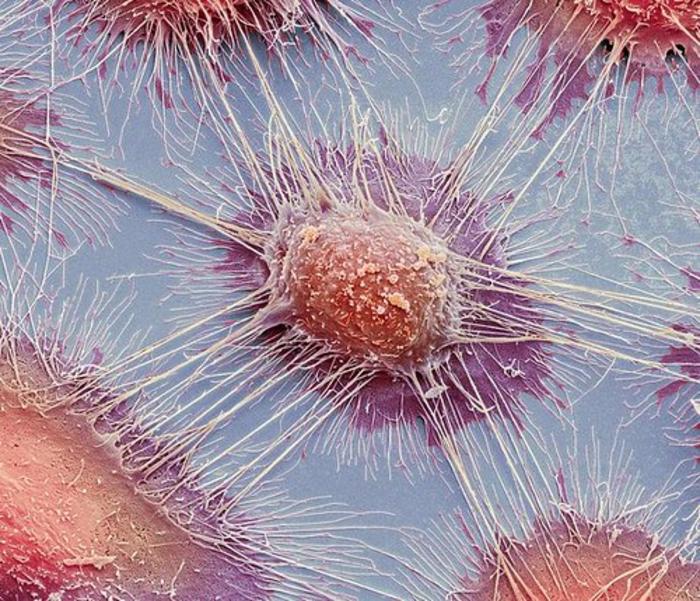Recent research led by a team from Okayama University in Japan has illuminated a novel mechanism by which cancer cells evade immune detection, a significant step forward in cancer immunology. The study reveals that mitochondria, the powerhouse organelles within cells, are not merely energy-producing entities but play a crucial role in the complex interactions between tumors and the immune system. This groundbreaking finding emphasizes the need to reevaluate current cancer treatment approaches, particularly immunotherapy, which aims to harness the body’s own defense mechanisms against cancer cells.
Immunotherapy has emerged as a powerful strategy in the fight against cancer, yet many patients experience resistance to these treatments. The research team, under the guidance of Professor Yosuke Togashi, has identified mitochondrial transfer from cancer cells to immune cells as a key factor contributing to this resistance. This transfer of mitochondria alters the metabolic landscape of immune cells, thereby diminishing their efficacy in combating tumor growth.
Understanding the dynamic between cancer cells and immune cells is pivotal. Immune cells known as tumor-infiltrating lymphocytes (TILs) are tasked with identifying and destroying cancer cells. However, cancer cells can manipulate their microenvironment to weaken these immune responders. By shifting the metabolic balance in TILs, cancer cells enhance their own survival by evading immune surveillance. The findings of this study suggest that mitochondrial transfer is a sophisticated strategy employed by tumors to outmaneuver the immune system, reinforcing the importance of mitochondrial function in cancer progression.
Additionally, the research team noted that mitochondria house their own DNA, which is distinct from the nuclear DNA found in the nucleus of cells. Mitochondrial DNA (mtDNA) is crucial for the production of proteins necessary for energy generation. In the context of cancer, mutations in mtDNA can lead to significant metabolic alterations, further promoting tumorigenesis. The researchers highlighted the fact that TILs from cancer patients frequently contain the same mtDNA mutations found in the corresponding cancer cells. This link establishes a direct connection between mitochondrial dysfunction and immune evasion.
The phenomenon of mitophagy, a process by which damaged mitochondria are typically eliminated from cells, seems to be inhibited in this scenario. Factors that prevent the degradation of mitochondria were found to accompany the transferred mitochondria, ensuring that these dysfunctional organelles persist within the TILs. Consequently, TILs displaying this altered mitochondrial function experience a cascade of negative effects, including impaired cell division and heightened oxidative stress levels, eventually leading to a compromised immune response.
In experimental models involving mice, the researchers observed that TILs with cancer-derived mitochondria demonstrated resistance to immune checkpoint inhibitors, a class of immunotherapeutic agents that have shown success in treating various cancers. This observation signifies a substantial hurdle in immunotherapy efficacy, suggesting that targeting mitochondrial transfer could radically enhance treatment responses.
The implications of this groundbreaking research extend beyond the laboratory. Enhancing the effectiveness of immunotherapy by inhibiting mitochondrial transfer could pave the way for improved patient outcomes and significantly diminish the financial and emotional burden that cancer imposes. With current cancer therapies often accompanied by high costs and adverse side effects, strategies aimed at overcoming resistance mechanisms are crucial.
Professor Togashi expressed optimism about the future of cancer treatment, proposing that the discovery of mitochondrial transfer illuminates new avenues for therapeutic intervention. By developing agents that can disrupt the transfer of mitochondria between cancer cells and immune cells, clinicians may be able to enhance the efficacy of existing immunotherapeutic strategies. Such advancements would be particularly beneficial for patients whose tumors have proven resistant to conventional treatments.
Furthermore, this finding holds profound implications for personalized medicine. Understanding how individual tumors manipulate their metabolic environment to evade immune responses could allow for the customization of treatment approaches, optimizing the efficacy of therapies tailored to patients’ unique cancer profiles.
In summary, this significant research underscores the intricate interplay between cancer cells and the immune system, unveiling mitochondrial transfer as a critical mechanism of immune evasion. The insights gained from this study could not only reshape our understanding of cancer biology but also catalyze the development of innovative therapeutic strategies aimed at enhancing the effectiveness of immunotherapy for patients battling resistant cancers. As we continue to explore the complex web of interactions within the tumor microenvironment, we are reminded that the fight against cancer is an ongoing battle that requires novel insights and evolving strategies to conquer.
Subject of Research: Mitochondrial transfer in cancer immune evasion
Article Title: Immune evasion through mitochondrial transfer in the tumor microenvironment
News Publication Date: 22-Jan-2025
Web References: Nature
References: None provided
Image Credits: Credit: izhongweining from Openverse
Keywords: Cancer, Immunotherapy, Mitochondrial DNA, Immune evasion, Tumor microenvironment, Metabolic reprogramming, Tumor-infiltrating lymphocytes, Homoplasmy
Tags: cancer cell immune evasion mechanismscancer immunology advancementscancer treatment approaches and challengesimmune system manipulation by cancer cellsimmunotherapy resistance in cancer treatmentinteractions between cancer cells and immune responsemetabolic alterations in tumor-infiltrating lymphocytesmitochondrial function in cancermitochondrial transfer between cancer and immune cellsnovel findings in cancer researchrole of mitochondria in tumor microenvironmentstrategies to enhance cancer immunotherapy





